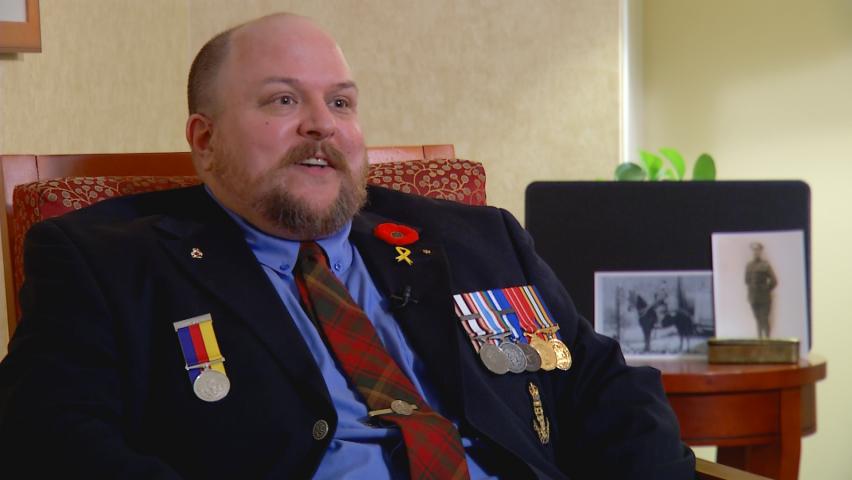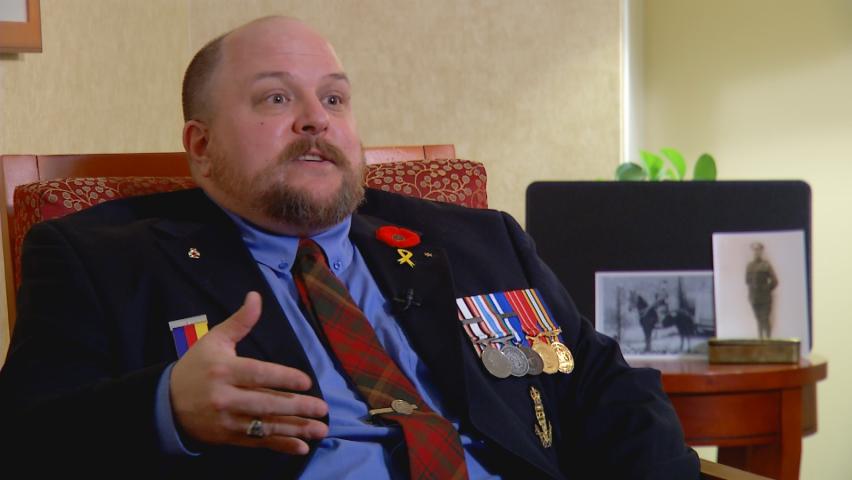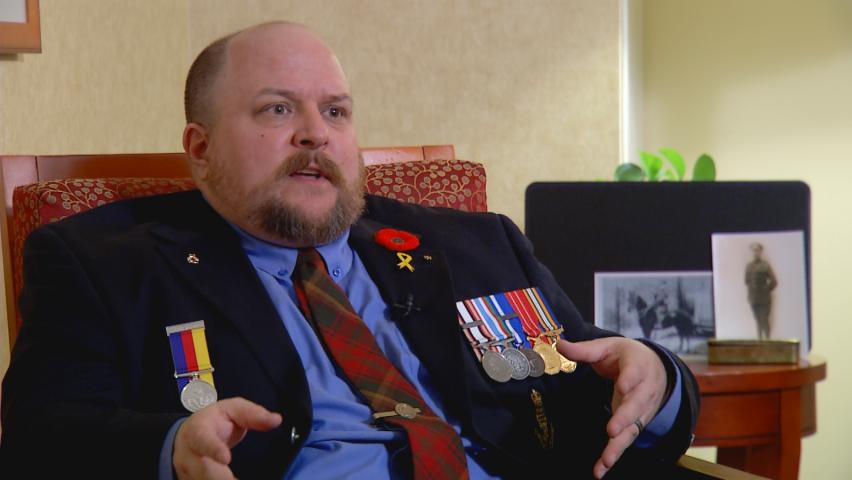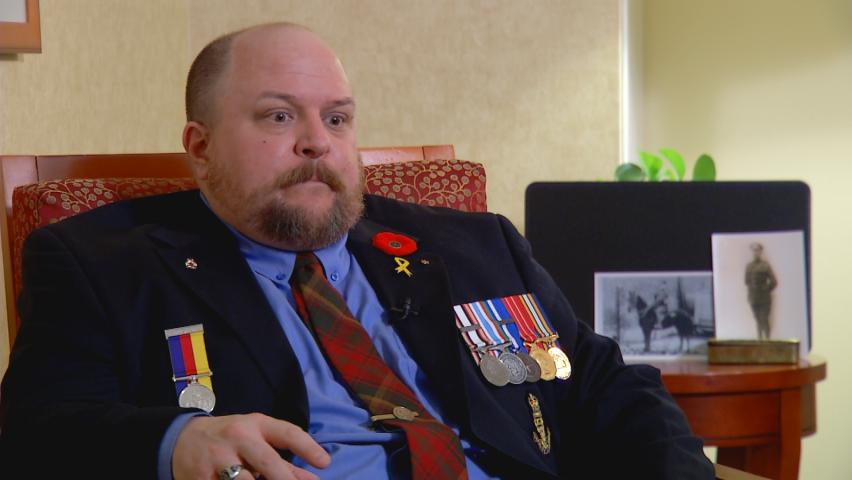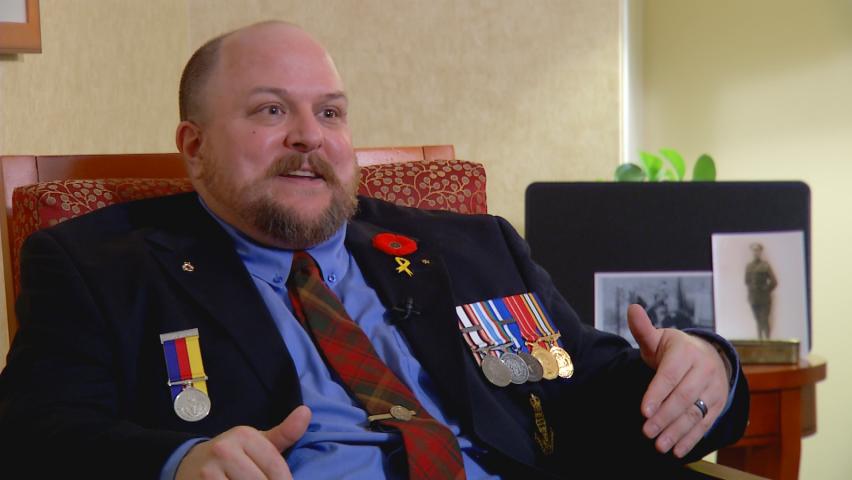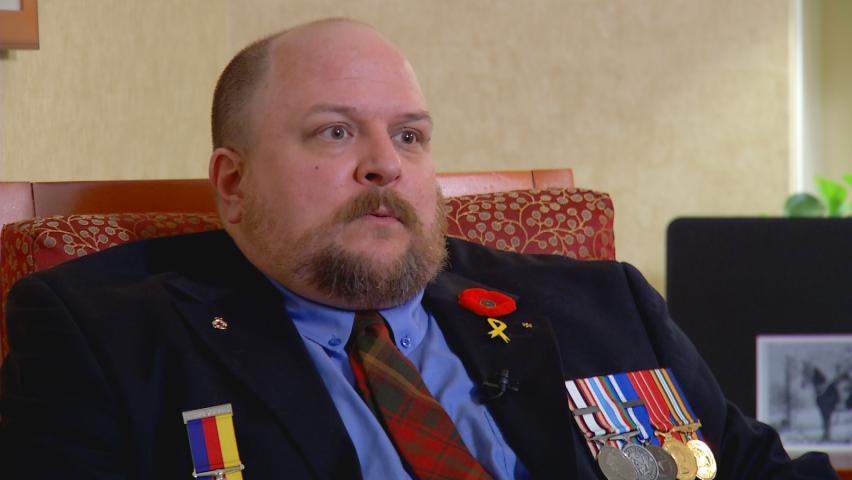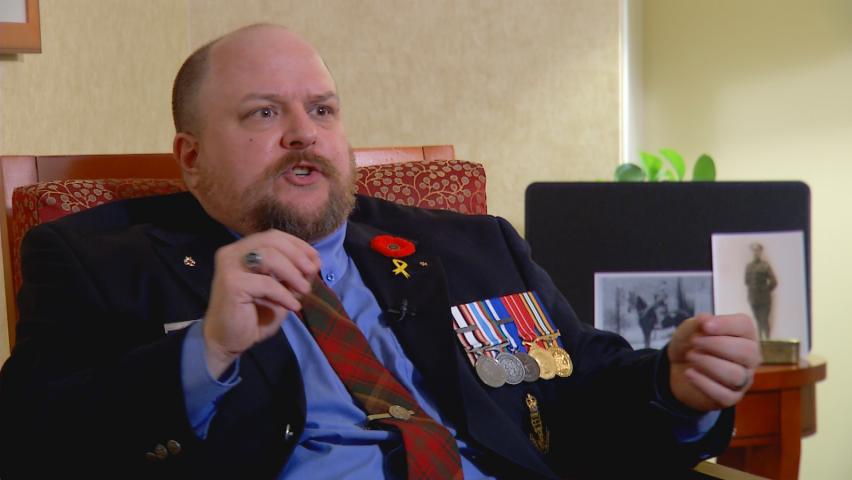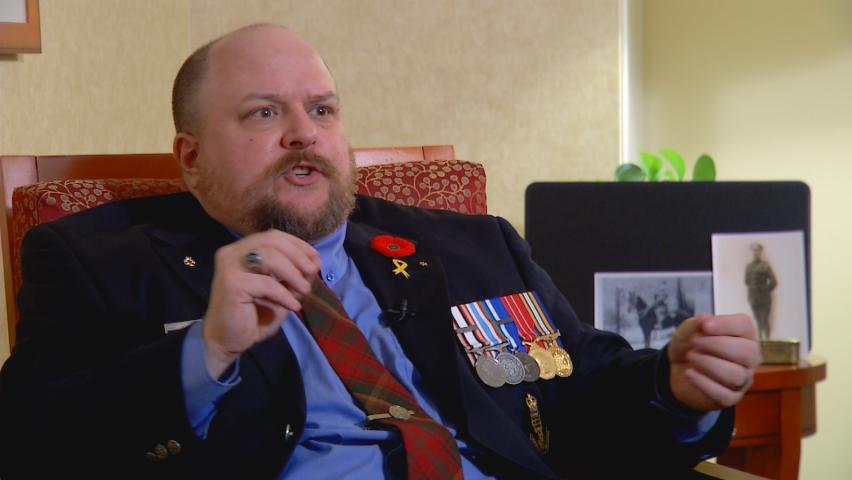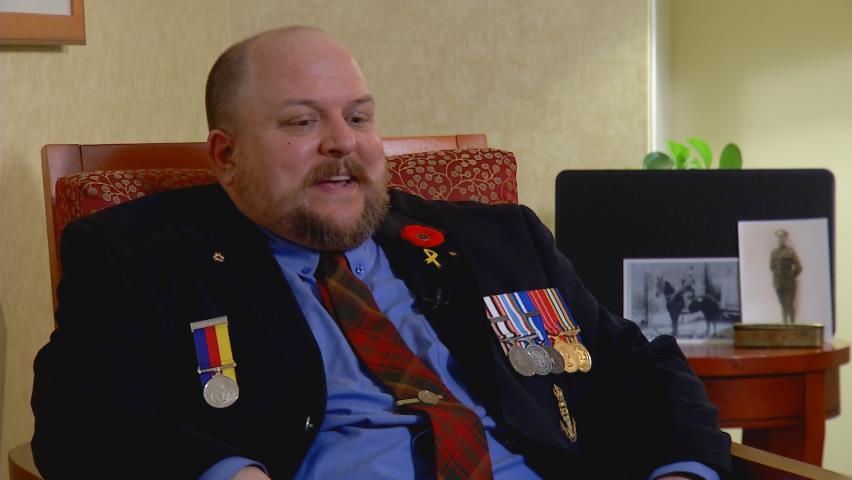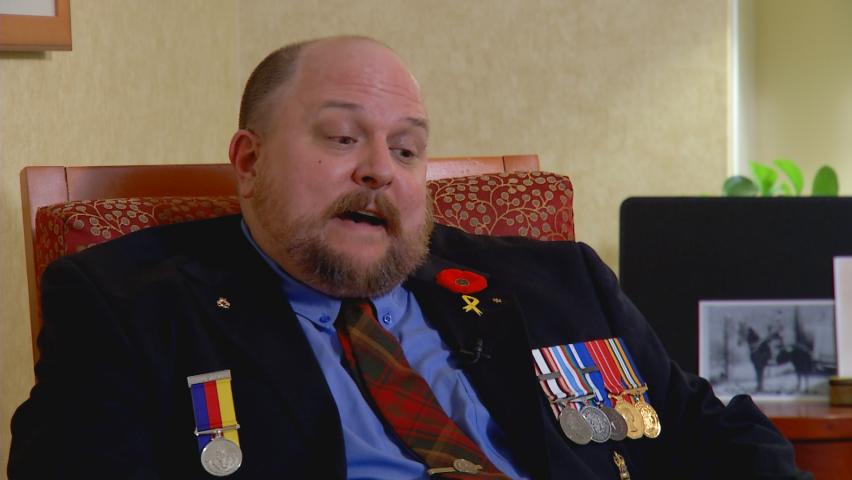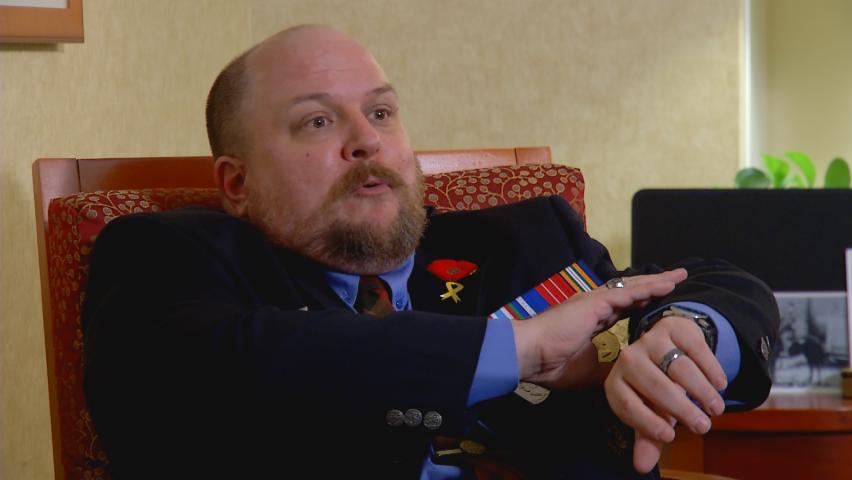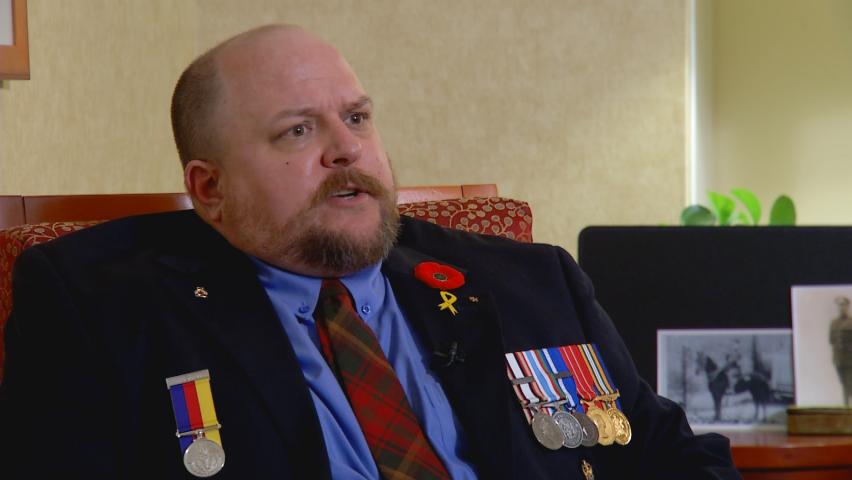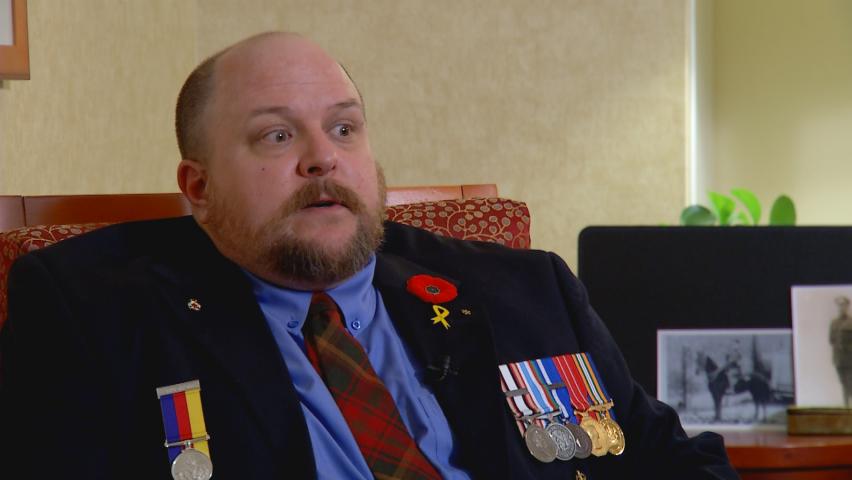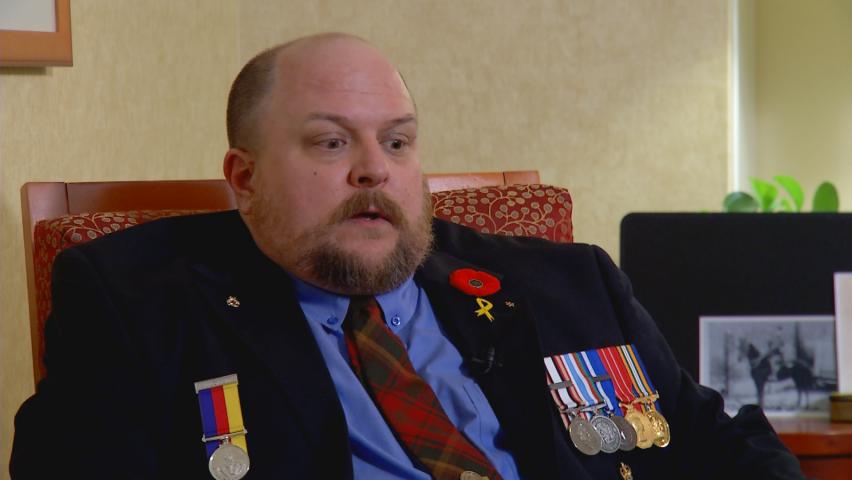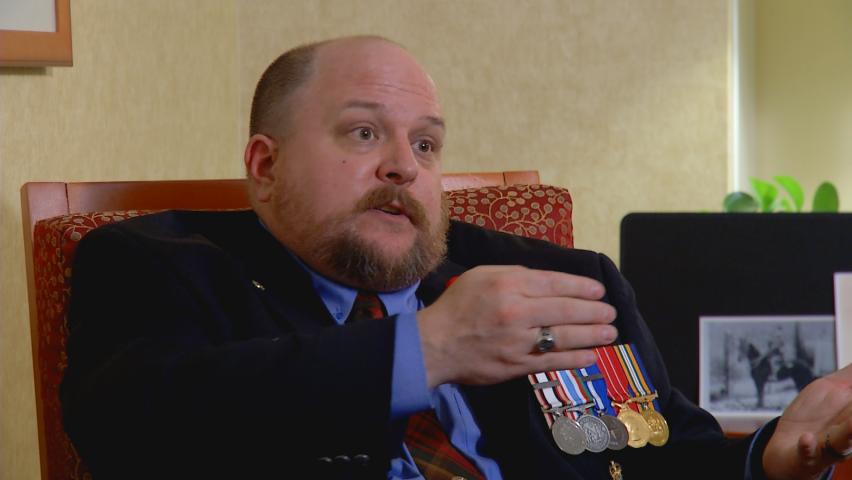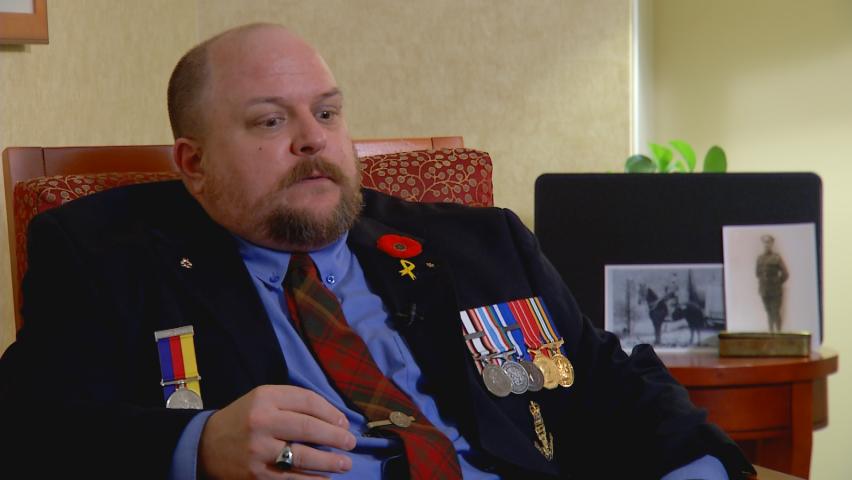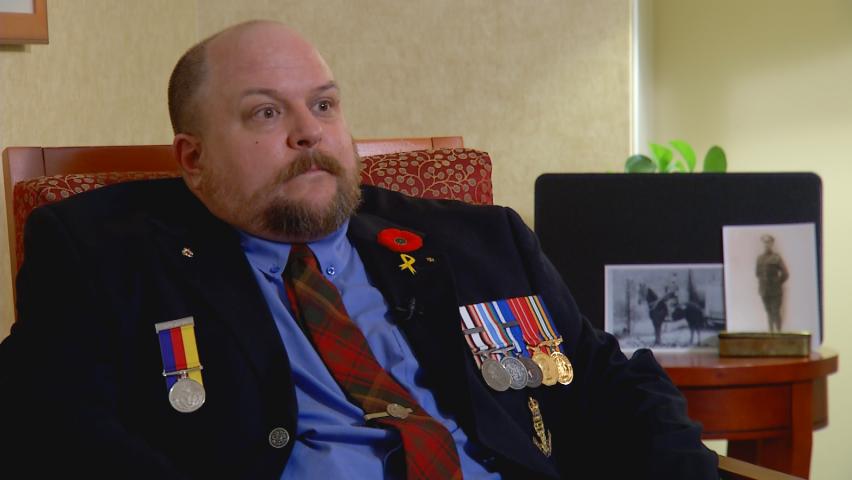You have to put on a smiley face,
go to work in the morning and, you know,
I joke with other friends,
sitting at the desk at work,
I work for Canada Post. It’s a great job,
great people, great company but there
are days there where I’m sitting there
refilling the stapler and, you know,
you are just thinking about machine guns,
you’re thinking about, you know,
anything else but what you’re doing,
it’s sort of mundane and it’s hard to
readjust to normalcy and
normal life after you have
lived through an experience like that.
The Civil War saying about seeing the
elephant is very true.
You are forever changed.
I truly believe that and people that were
there that went through that would feel the
same way I think. The ramp ceremonies
were very dignified, very emotional events
where the whole battle group would turn
out to pay respect to the soldier and it
didn’t matter if it was a private or a
sergeant or anyone else, or an officer,
the contingents showed up - British,
Canadian, American, French, Dutch,
Belgian, Romanian, anyone that was on
Kandahar airfield came to those
ceremonies to pay their respects
and it was overpowering.
The first couple what I saw, the ramp
ceremonies that I attended, you know,
they are emotional events.
Later on I ended up carrying one of my
own troops to that aircraft for his flight
home and you are definitely changed yet,
you know, I look back at my service,
I look at my grandfather and he lived
a very long life after World War I and
survived til 95 and, you know,
he found ways to make it,
to make himself cope and to make
himself get through it all.
Legion is one way,
a lot of people turned to drink,
or today a lot of people turn to
drugs to try to get through these things.
You have to, you know you owe it to those
people that you’ve lost to make your life
better and not, you can’t focus everything
on that one incident or one time,
you have to look after your family,
your kids, your wife.
You have to do what you have to do and
still function so soldiers know their duty,
they know they have a strong sense of
drive to get things done, you have to or
you won’t be in the army.
With the early mornings and the
pressures put on you, you perform and
a lot of the guys coming home today,
it’s so shattering when you are back
to normal and all of that excitement
is gone, all of that challenge is gone.
You know you always wonder if
you could do it, if you could
experience combat and not
that you want to be good at it,
not that you want to be good at hurting
someone else or killing someone else,
but you want to be good at your trade
at what you’re doing that you can function
well and perform well and I think that
drive helps people get through the other
challenges which are the mental health
side and you don’t expect them to be as
powerful as they are.
They can become very controlling,
take over your life and they’re a monkey
on your back that you have to handle and
you’re not gonna always handle it well,
you’re not always going to handle it to
the best but there’s places out there for
treatment. There’s things you can do to
help yourself and everybody is different,
everybody works a different way so you
have to find what works for you.



